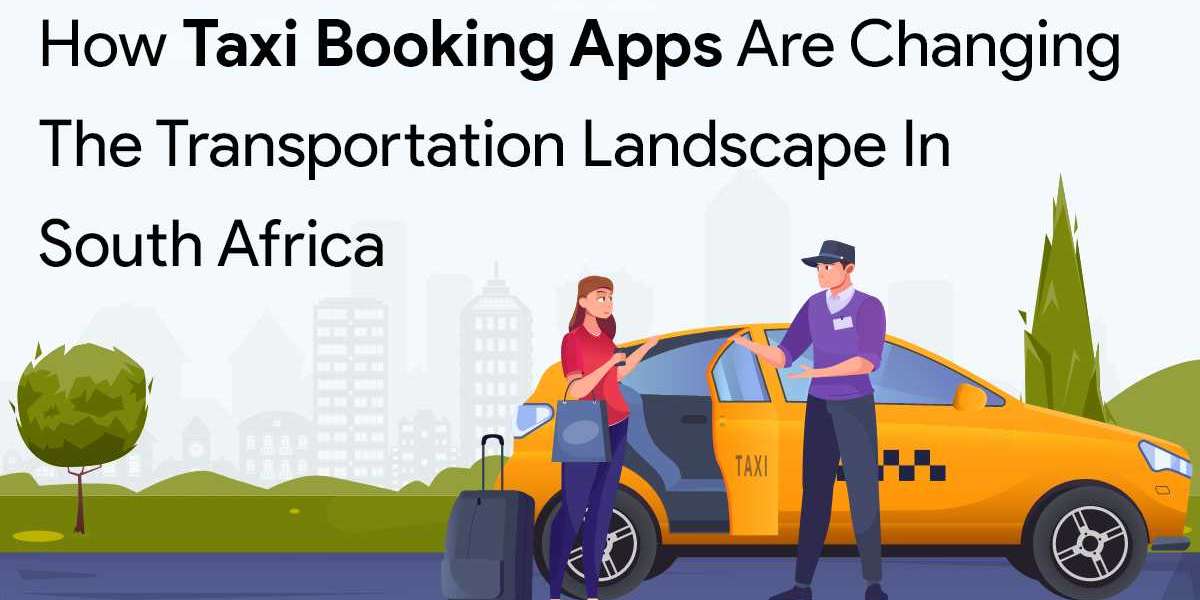In recent years, the transportation sector in South Africa has undergone a significant transformation, thanks to the advent of taxi booking apps. These digital platforms have redefined how people commute, offering a blend of convenience, safety, and accessibility that traditional taxi services have struggled to match. As urbanization accelerates and the demand for reliable transportation grows, taxi booking apps are playing a crucial role in reshaping the transportation landscape across the country. This article explores the impact of these apps, the challenges they address, and their potential to drive further innovation in South Africa's transportation ecosystem.
The Rise of Taxi Booking Apps
South Africa's transportation system has long been characterized by a mix of formal and informal services. While buses, trains, and minibus taxis have traditionally dominated public transport, they often suffer from inefficiencies, overcrowding, and safety concerns. Enter taxi booking apps, which have emerged as a game-changer in this landscape by providing a reliable and user-friendly alternative.
Convenience and Accessibility
One of the most significant impacts of taxi booking apps in South Africa is the convenience they offer. With just a few taps on a smartphone, users can book a ride from anywhere, at any time. This level of accessibility is particularly valuable in South Africa, where public transport options are often limited, especially in suburban and rural areas. Taxi booking apps bridge this gap by providing on-demand transportation services, ensuring that people can travel safely and efficiently, regardless of their location.
Enhancing Safety
Safety has always been a major concern for commuters in South Africa. Traditional taxi services, particularly minibus taxis, have a reputation for being unsafe due to reckless driving, overloading, and a lack of regulation. Taxi booking apps, however, have introduced a new standard of safety in the industry. These platforms require drivers to undergo background checks, vehicle inspections, and training, ensuring that only qualified and vetted drivers are allowed on the platform. Additionally, features like real-time tracking, driver ratings, and emergency assistance further enhance the safety and peace of mind for passengers.
Economic Opportunities
Taxi booking apps have also created new economic opportunities for drivers and entrepreneurs. In a country with high unemployment rates, these platforms provide a source of income for thousands of South Africans. Drivers who previously worked in the informal sector can now benefit from a more structured and profitable business model, with the potential to earn higher incomes through consistent work and access to a larger customer base. Moreover, the apps' flexible working hours allow drivers to work on their own terms, making it an attractive option for many.
Technological Integration
The integration of advanced technologies such as GPS, artificial intelligence (AI), and digital payment systems has played a pivotal role in the success of taxi booking apps. GPS technology enables accurate location tracking and route optimization, while AI-driven algorithms help match drivers with passengers efficiently. Digital payment systems, including mobile wallets and card payments, offer a cashless experience, reducing the risks associated with carrying cash and making transactions more secure and convenient.
Challenges Facing Taxi Booking Apps
While taxi booking apps have made significant strides in transforming the transportation landscape, they also face several challenges that need to be addressed to ensure sustainable growth.
Regulatory Hurdles
Regulation is one of the most pressing challenges facing taxi booking apps in South Africa. The rise of these platforms has sparked debates around the need for fair regulation that balances innovation with the protection of existing industries, such as the traditional taxi sector. Striking the right regulatory balance is crucial to ensuring that taxi booking apps can continue to operate effectively while fostering healthy competition.
Connectivity and Accessibility
Despite the widespread adoption of smartphones, internet connectivity remains a challenge in some parts of South Africa, particularly in rural areas. The cost of mobile data is also relatively high, which can limit the usage of taxi booking apps among certain demographics. Addressing these connectivity issues and making the apps more accessible to a broader population is essential for their continued growth and success.
Competition and Market Saturation
The growing popularity of taxi booking apps has led to increased competition in the market. Several local and international players are vying for a share of the market, leading to aggressive pricing strategies and promotional offers. While this competition benefits consumers, it can also put pressure on smaller players and lead to market saturation, making it difficult for new entrants to succeed.
The Future of Transportation in South Africa
Looking ahead, taxi booking apps are poised to play an even more significant role in shaping the future of transportation in South Africa. As the country continues to urbanize and digital technologies become more integrated into daily life, the demand for convenient, safe, and efficient transportation options will only grow. Innovations such as electric vehicles, ride-sharing, and autonomous driving technology are likely to further transform the industry, offering new opportunities for growth and development.
Conclusion
South Africa taxi app have undoubtedly changed the transportation landscape in South Africa, providing a modern alternative to traditional transport services. By enhancing convenience, safety, and economic opportunities, these platforms have made a positive impact on the daily lives of millions of South Africans. However, to sustain this momentum and continue driving innovation, it is essential to address the challenges related to regulation, connectivity, and competition. As the industry evolves, taxi booking apps will remain a critical component of South Africa's transportation ecosystem, shaping the future of how people move within the country.








